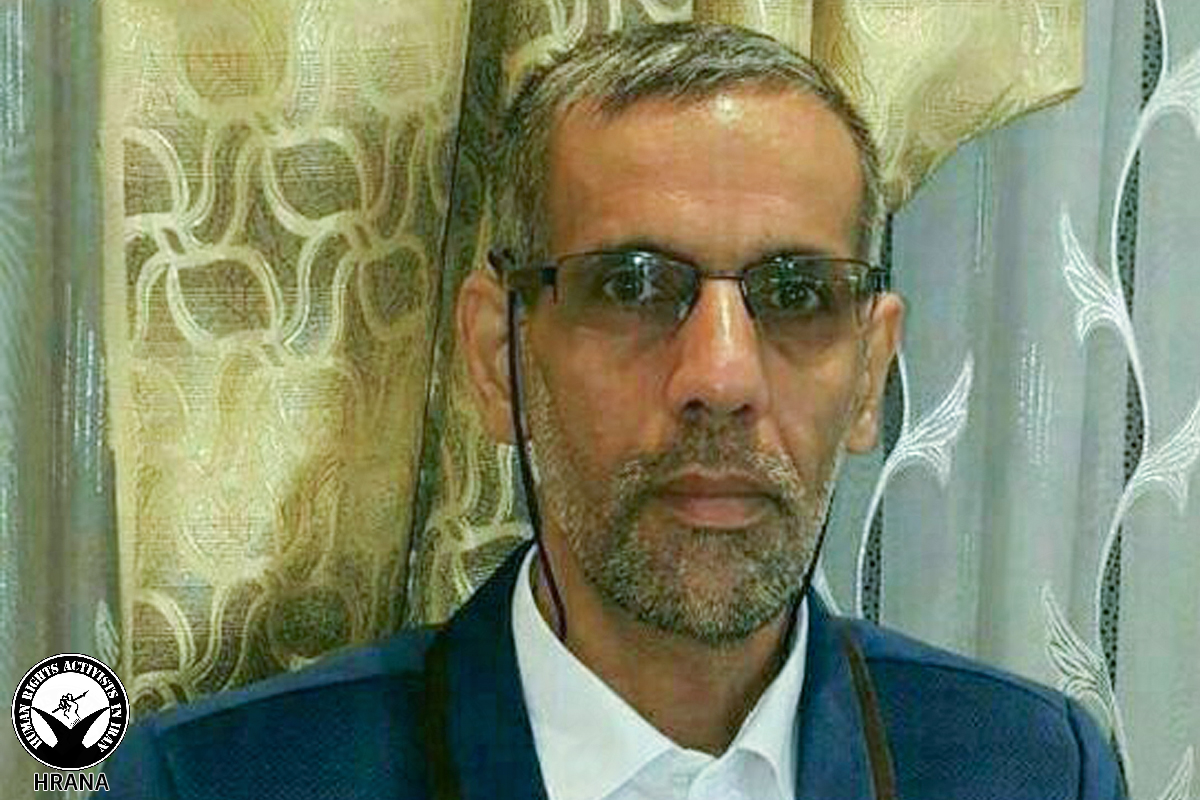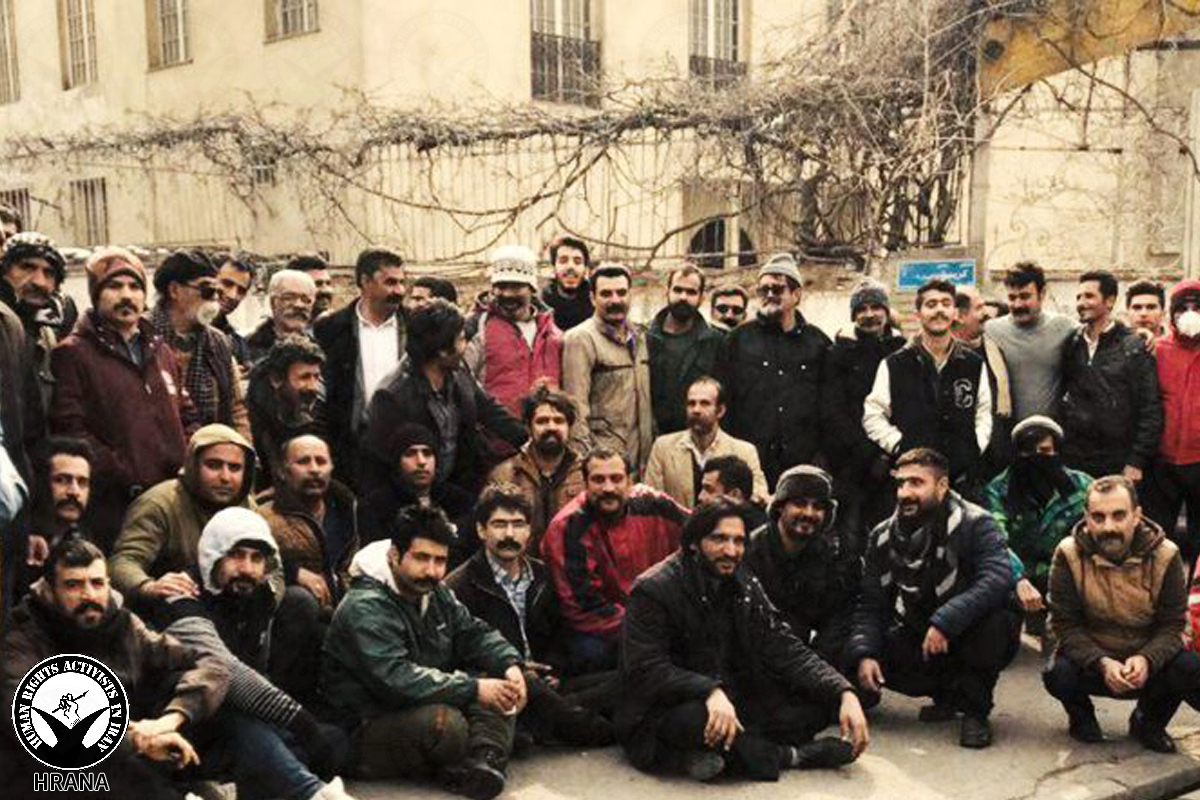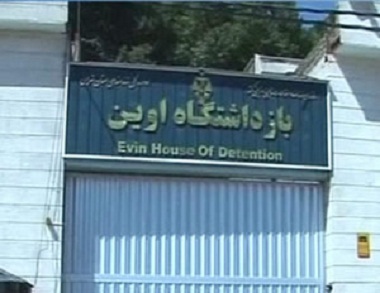Human Rights Activists News Agency (HRANA)- From the walls of a prison in Ardabil, Mohammad Saber Malek Raisi recounts the agony of becoming a pawn of the Iranian authorities, in a testimony that sheds light on the authorities’ use of political activists’ family members as coercion.
Malek Raisi is being held hostage himself by the Iranian Intelligence Ministry in a pressure tactic against his brother, a political activist operating outside of Iran. Currently serving an indefinite sentence in Ardabil, northwestern Iran, he has penned a letter to Javaid Rehman, UN Special Rapporteur on the Situation of Human Rights in Iran, imploring Rehman to help raise public awareness of hostage prisoners.
His letter is especially emphatic in its request to spare Abdollah Bozorgzadeh, a fellow prisoner, from the same fate. Bozorgzadeh is one of seven individuals arrested for demonstrating outrage over news of the rape of 41 women in the southeastern province of Sistan & Baluchestan, home to Iran’s Baluchi ethnic minority. Molaana Molazehi, the Friday prayer Imam of Iranshahr, had spread news of the rape after delivering the Eid-e Fitr prayer sermon at the conclusion of Ramadan on June 15, 2018, adding that the culprits were “individual(s) who had access to “power & money.”
Moved by this announcement, community members rallied on June 17, 2018 in front of the governor’s office. The Islamic Revolutionary Guard Corps (IRGC) fired back with an accusation that the protest was the work of foreign agents and arrested several activists on those grounds, seven of whom were later seen confessing in recordings broadcast by the IRGC. Adollah Bozorgzadeh, who had joined in support of the rape victims, was one of the seven.
Below is the translated text of Mr. Raisi’s letter:
Dear Mr. Javaid Rehman,
My name is Mohammad Saber Malek Raisi, and I am from Sarbaz in the Sistan & Baluchestan province. On October 14, 2009, when I was only 18 years old, I was abducted by agents of the Ministry of Intelligence. I have been their hostage for nearly nine years now. The Ministry has contrived charges against me while I’ve been in custody, accusing me of belonging to Jundallah [a militant Sunni organization known as the Peoples’ Resistance Movement of Iran, or PRMI]. My case was tried in Zahedan, the Revolutionary Court of the capital of Sistan & Baluchestan. This court accepted the “investigation” conducted by the Zahedan Intelligence Bureau, to the exclusion of all other evidence. The court ignored my protestations of innocence and was unfazed by the torture and duress I experienced at the hands of Intelligence Ministry agents who sought to extract false confessions from me. They were unfazed by the Ministry’s use of threats to intimidate my family, saying they would execute me if my brother, who is a political activist outside Iran, did not turn himself in. The court found me guilty under section 185 of the Islamic Penal Code for my alleged membership in Jundallah, sentencing me to 15 years in prison, to be served in exile in the city of Ardebil. I was given an additional two-year prison sentence under Passport Law section 34 on a charge of crossing the border illegally.
My conviction does even not correspond to the case facts invented by the Ministry of Intelligence. Even if were guilty, [based on my conviction date] I would be subject to Section 186 of the old penal code which defines the crime of Moharebeh (“enmity against God”) as an armed rebellion against the Islamic state, rather than section 185 which now defines it as banditry and plundering. I was sent to the ward of prisoners convicted of armed robberies, an out-of-proportion punishment that doesn’t even reflect the case built against me.
For 21 months, from my arrest in October 2009 until June 4, 2011, I was held in the Zahedan Intelligence Bureau detention center. During this period as well as the period between April 9th and July 11, 2017, while I was in Section 29 of Zahedan Prison (controlled by the Ministry of Intelligence), agents used my captivity to pressure my brother, Abdolraham, to abandon his anti-regime political activities.
When I was first arrested, my family was threatened with my imminent execution if my brother wouldn’t turn himself in.
I was transferred to Evin Prison for three months under the pretext of requiring medical treatment. But I received no treatment while I was there and am still suffering from a disease. During the same period, agents threatened to double my sentence unless my brother abandoned his cause.
It’s now been nine years since I’ve been imprisoned in the worst possible conditions, deprived of civil rights, including:
§ Public medical services
§ Access to religious books
§ The ability to write (unsupervised use of pen and paper are forbidden)
§ The ability to make phone calls
§ The right to learn and take classes
§ Access to other parts of the prison such as the library and store
§ The right to visits, furlough, conditional release, or serving my sentence in my birth city
§ Clemency
On the contrary– I am subject to deplorable and inhumane conditions that are the design of the Intelligence Ministry, including insults, mocking, beatings, extended isolation, being tied up outside in the cold snowy weather, and being handcuffed and shackled for forty days.
Mr. Rahman, with this evidence of my ordeal in hand, and in the name of all prisoners taken hostage by the Ministry of Intelligence, I ask you to launch an investigation and put an end to this unjust tactic, which in the last four decades has become a norm. I urge you to follow up the cases of those who are suffering the same fate as I am and to demand their release.
These individuals are many, and some have even been executed. Prisoners like Mehrollah Reigi Mahernia, who is only 18, Mohammad Saleh Torkamaan Rahi, Ayoub Gahramzayi, and Salman Jadgal, are all being held because of their siblings’ activism. Some like Alyas Ghalandarzehi, aged 18, is on death row for the politics of two of his uncles. There are more whose identities I cannot reveal, who regained freedom only because their activist family member turned themselves in.
The most recent case of brutal hostage tactics unfolded on June 17, 2018. The victim is a 30-year-old Baluchi, a young man named Abdollah Bozorgzadeh. Bozorgzadeh is only beginning the stages of a process which slowly depraves and spoils one’s life. He is being used as a tool to pressure his brother Habibollah.
Perhaps the word “pressure” does not do justice to the true nature of what these victims and their families experience. In reality, the stress permeates the family’s entire existence, brutally destroys the life of the hostage, and paralyzes the family in a state of suspense. The uncertainty is a major psychological blow to every single family member who is awaiting the fate of a loved one held hostage. The families cannot comprehend how such a cruel injustice could exist in our world.
Mr. Javaid Rehman, knowing my family’s and my own dark experience, I do not wish this suffering upon anyone else. That is why my parents, my brother Abdolrahman, and I ask you to persist in elucidating the case of Abdollah Bozorgzadeh, so that he and his family do not have to suffer as we have.
Abdollah’s father has staged sit-ins twice to demand the release of his son, but no organization has been responsive to him.
Abdollah Bozorgzadeh is a student who attended a rally like many other young people in Iranshahr who were demanding justice for victims of a local sexual assault case. No law was broken, no act of desecration took place. He is detained arbitrarily, for the political activities of his brother against the regime. Please act to secure his release!
Mohammad Saber Malek Rayisi
Ward 7 of Ardebil Prison














